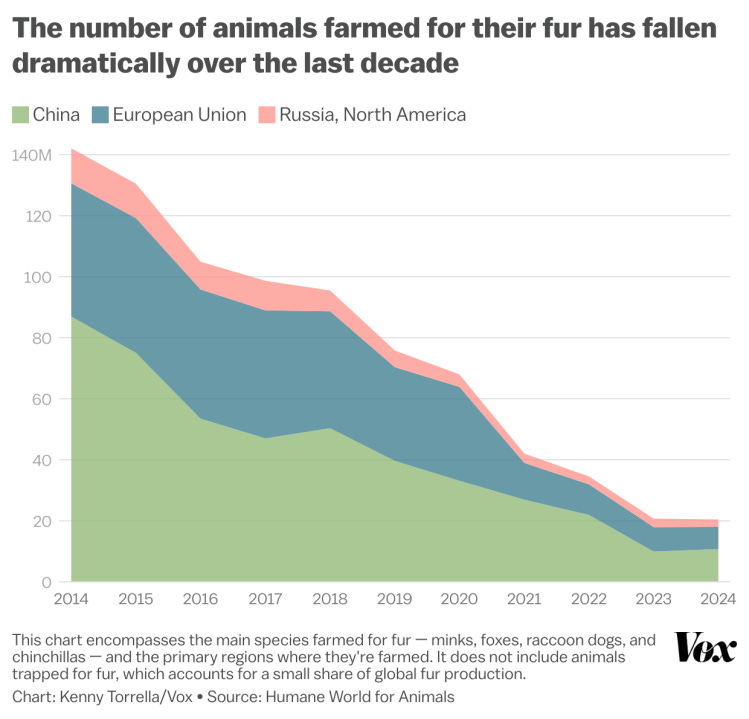Doomslayer: Weekly Progress Roundup
Radioactive rhino horns, new AI models, the end of fur farming, and more.
Energy & Environment
Conservation and biodiversity
To help crack down on poaching, scientists in South Africa are injecting rhino horns with low-level radioactive isotopes that are harmless to the animals but detectable by scanners at airports and border crossings.
Researchers have identified the pathogen responsible for billions of sea star deaths off the Pacific Coast of North America and the widespread destruction of kelp forests. The finding solves a decade-long mystery and could help efforts to restore sea star populations and the ecosystems they support.
Energy & Natural Resources
BP has made what it calls its “largest global oil and gas discovery in 25 years” in Brazil.
Health & Demographics
More Americans are playing sports.
New research links lithium deficiency to Alzheimer’s. After finding that dementia patients often have low lithium levels, a group of scientists tested the relationship using mouse models. In mice bred to develop dementia, a low-lithium diet worsened symptoms, while lithium supplements improved them. The results hint that lithium loss might not just be an effect of Alzheimer’s, but a possible cause.
Kenya has eliminated sleeping sickness, and Uganda is on track to eradicate river blindness.
Breastfeeding is becoming more common in Indonesia. The World Health Organization estimates that 66.4 percent of Indonesian infants were exclusively breastfed1 in 2024, up from 52 percent in 2017.
This is a big deal. According to the WHO:Evidence shows that breastfeeding boosts children’s cognitive development by 3–4 IQ points, reduces overweight and obesity risk and provides lifelong protection against non-communicable diseases. Babies who are not breastfed are up to 14 times more likely to die before their first birthday than those who are exclusively breastfed during their first six months.
Correction: While the WHO claims that exclusive breastfeeding is causally linked with higher IQ and lifelong health benefits, other research finds that most of these long-term associations disappear after accounting for selection effects.
Science & Technology
OpenAI has released GPT‑5, its most capable model yet, as well as two additional open-weight models. These open models let developers run and modify the code themselves, enabling offline use and a greater level of customization.
Google’s DeepMind has developed an AI model that can generate interactive 3D environments in real time from text prompts—potentially transforming filmmaking, video game development, and even AI training methods.
Microsoft has taken a step toward solving one of cybersecurity’s biggest bottlenecks: detecting and classifying malicious software. Its new AI agent, Project Ire, can automatically analyze suspicious files—work that normally takes hours of expert analysis. In testing, it caught just 25 percent of malicious files, but close to 90 percent of its flags were correct.
The AI voice-over company ElevenLabs has launched a music-generating software. Here’s the impressive demo:
Violence & Coercion
According to new FBI data, the US violent crime rate fell 4.5 percent from 2023 to 2024, hitting its lowest level in two decades.
Fur farming is in steep decline. Between 2014 and 2024, the number of animals in fur farms fell from over 140 million to around 20 million.
Progress Studies
Timothy Lee remarks on Waymo reactionaries.
Anton Howes discusses the history of the Industrial Revolution.
Meaning the child is given only breast milk during its first six months, no other foods or beverages.





Love your newsletters. Generative AI is both intriguing, inspiring, and troubling, and your mention of both ElevenLabs and DeepMind in this week's newsletter is related to an important commentary I posted yesterday on the ethical minefield of generative AI: https://youtu.be/XTFJp-N4Mf4